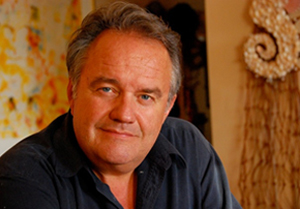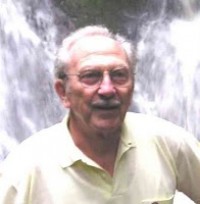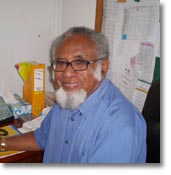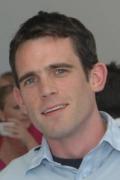
AUCKLAND: (Pacific Media Watch) Leading Pacific journalists and academics have condemned a popular anonymous Fiji blog for an "outlandish” smear campaign against them.
Coup Four and a Half, or coupfourpointfive, an anti-regime blog, earlier this month published a list of “rats who're [sic] making excuses for Bainimarama and his illegal regime”.
The blog accused them of being "friends" and supporters of the military-backed regime - an allegation rejected by several key people named in the target list of 14.
The regime "roll call" also included people from Australia, New Zealand and an MP from Tonga as well as prominent people in Fiji. Three senior academics and administrators from the regional University of the South Pacific and one from the Fiji National University were also named.
Photographs of the named people were also featured on the blog, which today claimed 893,413 pageviews since September 2009.
Some media law academics have criticised the attack on May 2, saying defamatory blogs had "created challenges".
Graham Davis, a prominent Fiji-born journalist and now an independent broadcaster and publisher in Australia, was named. He agreed to be interviewed and named by Pacific Media Watch, saying he was not surprised at the defamatory comments by the blog, which has often attacked him.
“I don’t mind if they want to have a go. But it’s a shame that they personalise it and accuse you of being a rat,” he said.
Journalist's riposte
Davis hit back at the article with a post on the blog saying he was proud to be part of a “rat pack” standing for truth.
“Thank you for putting me in the ranks of the rats,” wrote Davis.
“This is actually a roll of honour, not of shame. A simple question. What's in it for all of us in this rat pack you've identified? Riches, fame? I for one haven't received a cup of tea let alone been made a honorary colonel," he quipped.
"The truth is that we have taken a stand against the corruption of the [former democratically elected Prime Minister Laisenia] Qarase years ...
“If being a rat means having my name associated with some of the finest people in Fiji, then I'm a rat and proud of it. Vinaka.”
Retired academic Professor Crosbie Walsh, a New Zealander who was founding head of development studies at the University of the South Pacific, was another person named in the blog.
Dr Walsh now publishes a blog specialising in Fiji news and analysis, but unlike the anonymous coupfourpointfive, he professionally puts his name and details on the site, and is accountable for his publication.
“It’s what I’d expect [of coupfourpointfive], and in line with most of the comments you get on the anti-government blogs,” said Walsh.
'Insults, swear words'
“All you get is insults and swear words. It’s rare you get something accurate from the [anonymous] blogs.”
All of the attacked people interviewed by PMW said most of those named on the list were known dissidents of the regime and there were plenty of others more favourable to Commodore Voreqe Bainimarama left off the list.
“They are people who are well-known to have stood up to the regime,” said Dr Walsh.
That includes a Methodist, Rev Akuila Yabaki, chief executive of the Citizens' Constitutional Forum, a strong advocate of human rights and vocal critic of the regime.
“I have taken the stance of critical engagement with Bainimarama just as I did under the elected Qarase government since 2001,” said Yabaki, defending his record.
“My critics now would be those who have lost out after 2006 and perhaps might have been supporters of 2001 and profited somehow.”
Rev Yabaki said his resolve had not changed, and would not change in the face of any criticism.
Suppressed by censorship
“Our voice in the media has been suppressed by censorship in the newsrooms of various outlets. Yet we persevere and with consistency.
“Twice I have written to Bainimarama to lift the PER and recently to Aiyaz Khaiyum proposing a public consultation on the PER.”
The controversial Public Emergency Regulation has recently been extended by the regime without any reason given. Bainimarama had promised to lift the PER once the Media Industry Development Decree had been passed. It became law in last September.
Davis also defended Yabaki, saying it was a “total joke” to say he was pro-government.
“That was very unfair. There is a bloke who certainly doesn’t deserve to be on [the list], simply on the basis of fact,” he said.
“He regularly takes [the government] to task.”
Davis, who interviewed Bainimarama at length last year, defended his own position on Fiji.
Multiracial Fiji
“I am well-known as an advocate for multiracial Fiji,” he said.
“But my whole support for Bainimarama is strictly on the basis that one – he pursues a multiracial agenda, and two - he sticks to his promise to return Fiji to democracy in the time frame he originally set.
“If either were to change, my support wouldn’t be there for him in the same way.”
Davis said the bloggers were careful to name plenty of people on the "outside" but stopped short of mentioning any of the direct collaborators of the military government.
“They are not brave enough to name the official people in the regime,” he said.
The anonymity of the site and those that edit its pages tends to suggest that the blog is being run from Fiji. But it is widely believed that journalists in NZ are behind the blog.
Dr Walsh said: “If the [Fiji] government knew who they were, they would be rounded up immediately. Their comments breach the law and are libellous.”
However, to make such allegations while being anonymous and unaccountable may only be detrimental to their own reputation.
'Wild stuff'
“They've run some wild stuff in the past that's damaged their credibility, such as saying [Attorney-General] Aiyaz was arrested,” said Davis.
“But they have also been right on things like the Driti/Mara fall-out with Frank [Bainimarama], which I think they got before anyone else.
“Any mainstream journalist in the region would be taking a big risk using them as a source and I think most outlets have stopped doing so.”
Walsh said most of the content on the site was “absolute nonsense”.
“Someone is either feeding them the information or they are making it up. They are gullible to that information, and don’t check it. They assume the worst and print it. And 80 percent of the time they are proven wrong.”
Davis said the site did not say that it moderated comments, but seemed to allow all sorts of comments, including those with racist sentiment.
He said the site published comments that refer to Indo-Fijians as "myna birds" and "mongooses", derogatory comparisons of the racial group to imported pests.
One post in particular had annoyed him – a reader encouraged the site to publish the addresses of the people named in the blog list.
'Beyond the pale'
“That is starting to get beyond the pale. I mean they can’t get to me, but it’s appallingly irresponsible if they do publish them,” he said.
Bob Pratt, executive secretary of the Fiji Media Council, said he personally paid little attention to blogs and would not be familiar enough with them to comment.
However, he did say general sentiment was that they could not be trusted.
“The generally accepted opinion in Fiji seems to be that blogs are merely circulating hearsay and rumours. They are largely treated as a bit of a joke,” he said.
“Those that do not name the author or authors are best ignored.”
Pratt said the group of bloggers were unknown by the bulk of the Fiji population, who were not interested.
“In my view the authors flatter themselves if they believe their outlandish comments do in anyway influence events.”
ISP problems
Steven Price, adjunct lecturer of law at Victoria University of Wellington and author of Media Minefield, said the content was an obvious case of defamation.
“The information clearly suggests that the defamed subjects are cooperating with an illegal regime.”
But he said the defamed parties would have to track down the internet service provider of the site if they wanted to take action.
He said the rise of the blogs had “created challenges” and convincing an ISP to reveal the identity of a blogger could involve obtaining court orders in foreign countries.
Blogger, which hosts coupfourpointfive, is an American-based company.
“The basic principles of defamation are the same as they always have been. The thing is ordinary people now have access on the internet as publishers,” he said.
“It is all in a state of flux at the moment.”
Media law specialist Professor Mark Pearson of Bond University and author of The Journalist's Guide to Media Law, said there had been a proliferation of highly defamatory material on the internet in the age of blogging and social media, but legal actions were not necessarily the way to go.
"They hide behind the screen of anonymity and fire their defamatory comments from another jurisdiction where they are difficult to pursue," he said.
"The best approach for the defamed is to either ignore the attacks or to counter the claims via credible media outlets where their responses can be heard."



